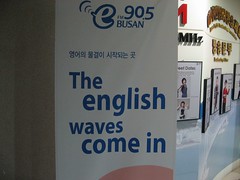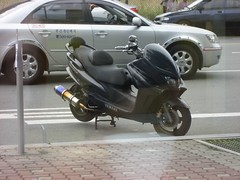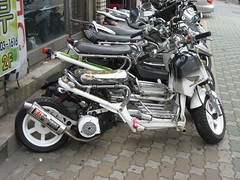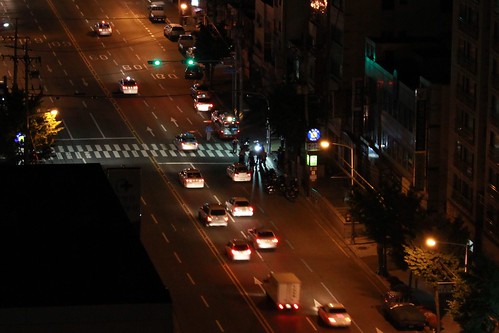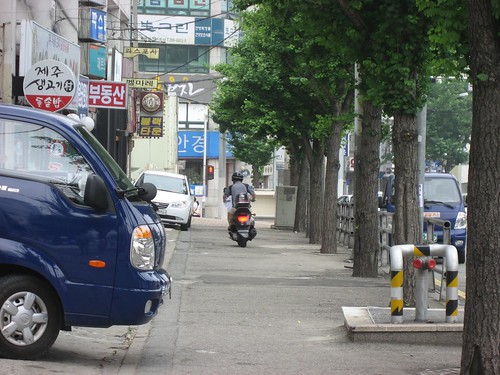That said, I'm not promising to make this useful because the first and last thing I'm going to say about trading in Korea is don't, with one caveat – there's a distinction between longer-term investing over a period of years and shorter-term trading.
On a general matter, about half the people I've ever talked to about trading have an idea about the system they will employ to trade. They may even have read books. If you're one of these people and you think you have a system, well, you don't. Sorry to rain on your parade.
It's an oft-quoted statistic that 90% of traders lose money and I've actually read the original research paper - and the figures are as frightening as you might imagine. Worse in fact, because it doesn't follow that the remaining 10% are wildly profitable – some are just treading water. Of course, you can read plenty of books on how to be successful in the world of trading (the real answer is writing books about how to trade).
Anyway, for several years I consider myself to have been a successful trader insofar as I was very much within that 10% to the extent that I paid my bills and funded my lifestyle from trading profits but I wasn't good enough to breeze in and out of the market like one genuinely gifted trader I knew so it all came from very hard work – I put in minimum 57-hour weeks and this is not an exaggeration. You can certainly get yourself over to Birt's EA Review and set your imagination racing but if running forex bots were easy in the long run I think there'd be no need for a site like that in the first place, so if you find yourself beguiled by such things you should also recognise the paradox.
When I was doing my 'Open Mike' segment on Busan e-FM I discussed the issue of Financial Trading in Korea and if you have an interest in this subject you should link off and read the summary for this now.
What's relevant from that particular show is that obviously the first hurdle facing anyone interested in using a Korean broker/trading product provider is the language barrier. The second is that my impression of the Korean market is that it's like the Wild West with rampant ramping of stocks in a broadly long-only product-providing market. That's not to say that you can't make money from it, but you may as well visit a casino. This is just a subjective opinion – although I'm pretty sure I'm right – but what is not subjective is the issue of liquidity and namely the fact that the Korean market doesn't have nearly as much of it as London or New York. Yes, the newspapers here will sometimes claim otherwise and I admire their unceasing efforts at assisting Korea's attempts to continue performing public fallatio on itself, but you probably shouldn't watch or try this at home.
The next problem is that because Korea's laws are fairly hostile to international financial institutions (it only recently allowed hedge funds to operate in Korea) and because international financial providers have a hundred internal and regulatory rules of their own to comply with, it's actually quite hard in my experience to even find reputable forex providers prepared to accept foreign customers based in Korea. After a considerable effort which involved notarised forms of identification (try pulling off that trick with Korean notaries who can't understand English), I eventually opened up an account and discovered it wasn't possible to transfer money into it from Korea. The conclusion is it's better to open accounts while you're living somewhere else and then operate a don't-ask-don't-tell policy with them regarding your location.
But let's assume you have a broker and can trade from Korea. Your next hurdle is the time-zone. Actively trading U.S. stocks is out because New York is open when you are in bed. I suppose you could play fire-and-forget with some trades and set a few limit orders to buy and sell but it's a risky business and inefficient (for which you can read 'unprofessional'). European opening hours are more Asia-friendly up to a point, although London's 1.30am finishes in winter are still endurance-testing.
Of course, forex offers a 24-hour market five days a week but what they don't tell you is that the best liquidity is still during London-New York hours, and strange and mysterious things often happen during the Asian trading hours. If you're looking at a trading bot with form it may well not account for these shenanigans and if you're rolling your own your backtesting will probably represent an ideal you'll probably never attain (I could give you chapter-and-verse on trying to build accurate backtesting results using MetaTrader but the executive summary is forget it).
From what I can tell, shorting is not a tool generally available to Koreans so most people trade the kind of dubious "theme stocks" that are so Wild West they might even put London's AIM market – which actually has been described as a casino – to shame. Many Koreans have traded Equity Linked Warrants (ELWs) but the Financial Services Commission wants to ban short-term trading in them. It may be just as well though because warrants with maturity dates (assuming the ELWs do) generally benefit from a knowledge of the Black-Scholes model and where offered to small investors they are – in my opinion – usually 'designed' (cough) to transfer money from said small investors to the issuers of the warrants (cough cough order book manipulation cough cough). I really must see a doctor. It also seems the market in Korea is imploding because it was more directly manipulated.
And even if I could understand Korea perfectly and had the tools at my disposal to trade Korean stocks, the conclusion I've drawn from my extensive reading of Korean news and personal experience of dealing with people here professionally is Korean business and political life is permeated by a intriguing kind of 'moral pragmatism' which would discourage me from wanting to invest in them.
For what it's worth 'Financial Hub Korea' – which is inexplicably marketed under the obfuscated title 'Fn Hub Korea', is pressing on in its tireless mission "to promote Korea as an international finance market" (or perhaps that should be "an international fn market") so perhaps one day things will get better and I sincerely hope they do, but in my limited experience Korea is hostile to the international movement of capital, I'm convinced from my reading of the news that it's hostile to foreign companies (to be fair like America and Canada also are), and it's hostile to domestic financial speculation of all kinds including the evil 'property speculators' that had the temerity to buy property in Pyeongchang before it won its Winter Olympic bid. How very dare they. (And they still aren't very keen on foreigners owning property – a long personal story for another time).
Ironically due to the hypocrisy around which so much of political life in Korea revolves, property speculation is such an important national pastime here that I'm sure they would actually make it an Olympic event in time for Pyeongchang if they could. Korea might not win gold but they might at least be in with a chance - the earnings-to-price index of salaries to property is eye-watering compared to my own country, where it is considered high.
It's a shame about all this regulation and sniffyness because the idea of Korea being a 'Fn Hub' in this region of the world isn't perhaps quite as utterly absurd as it first seems – nobody really trusts the Chinese financial markets and Japan evidently can't run a stock exchange to save their lives.
So my personal conclusion is – and I did say I'd end on this – is don't trade Korean financial markets.

